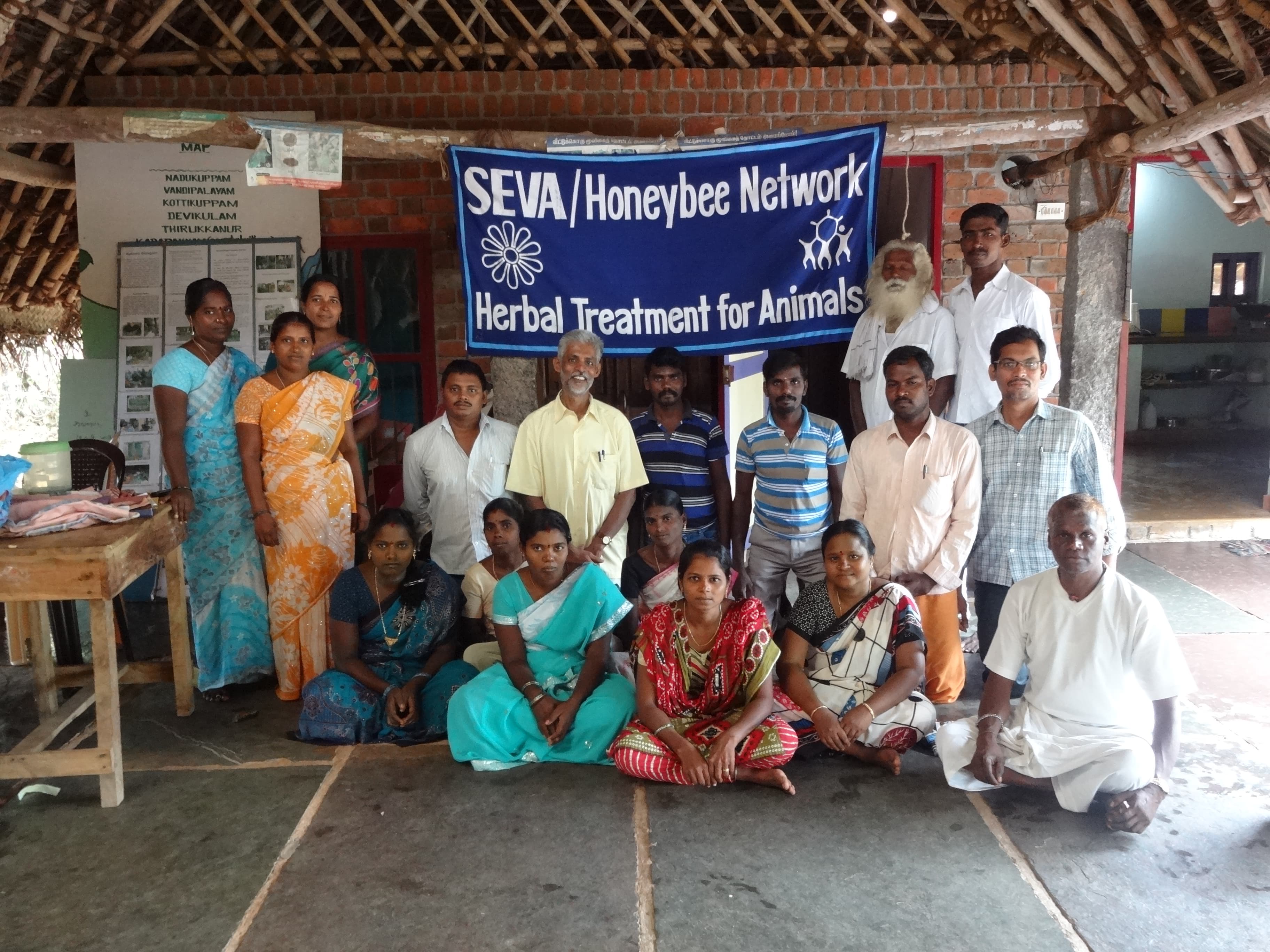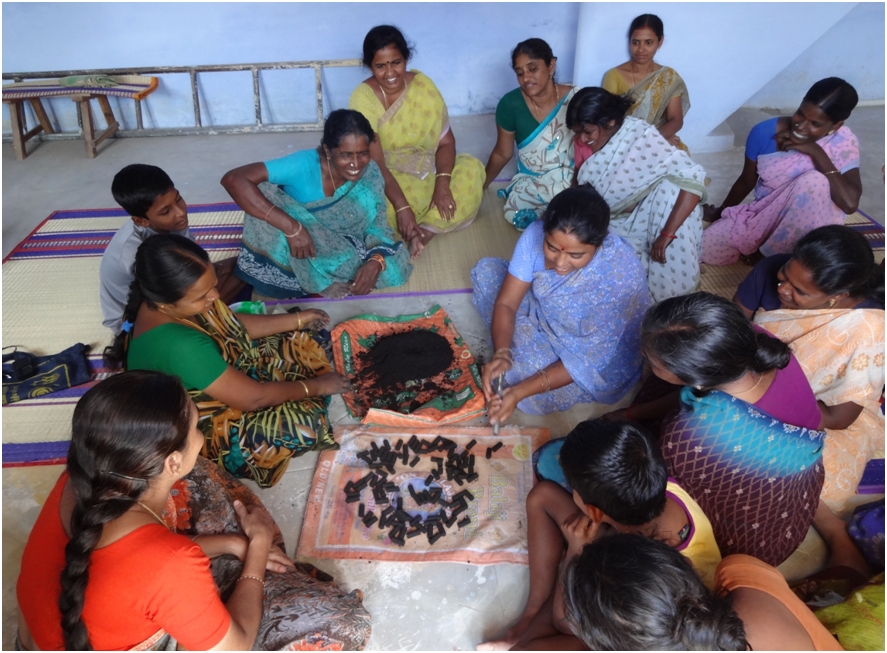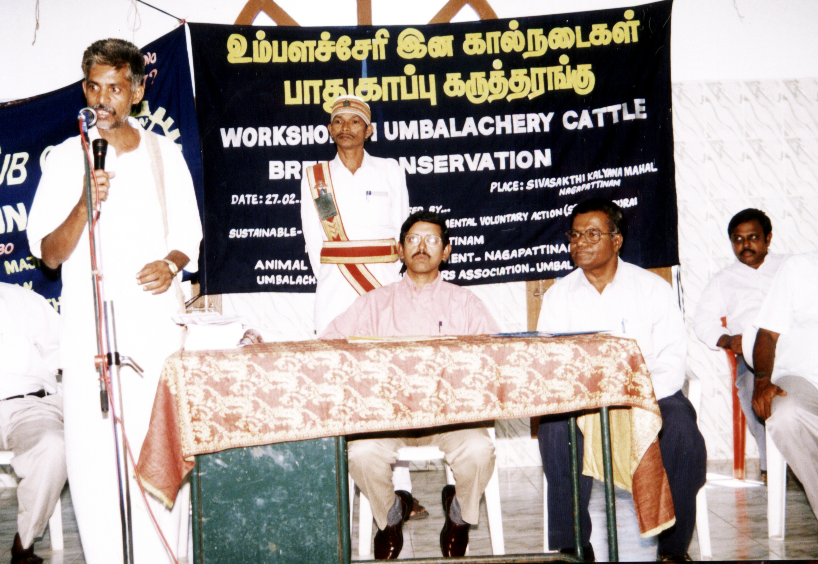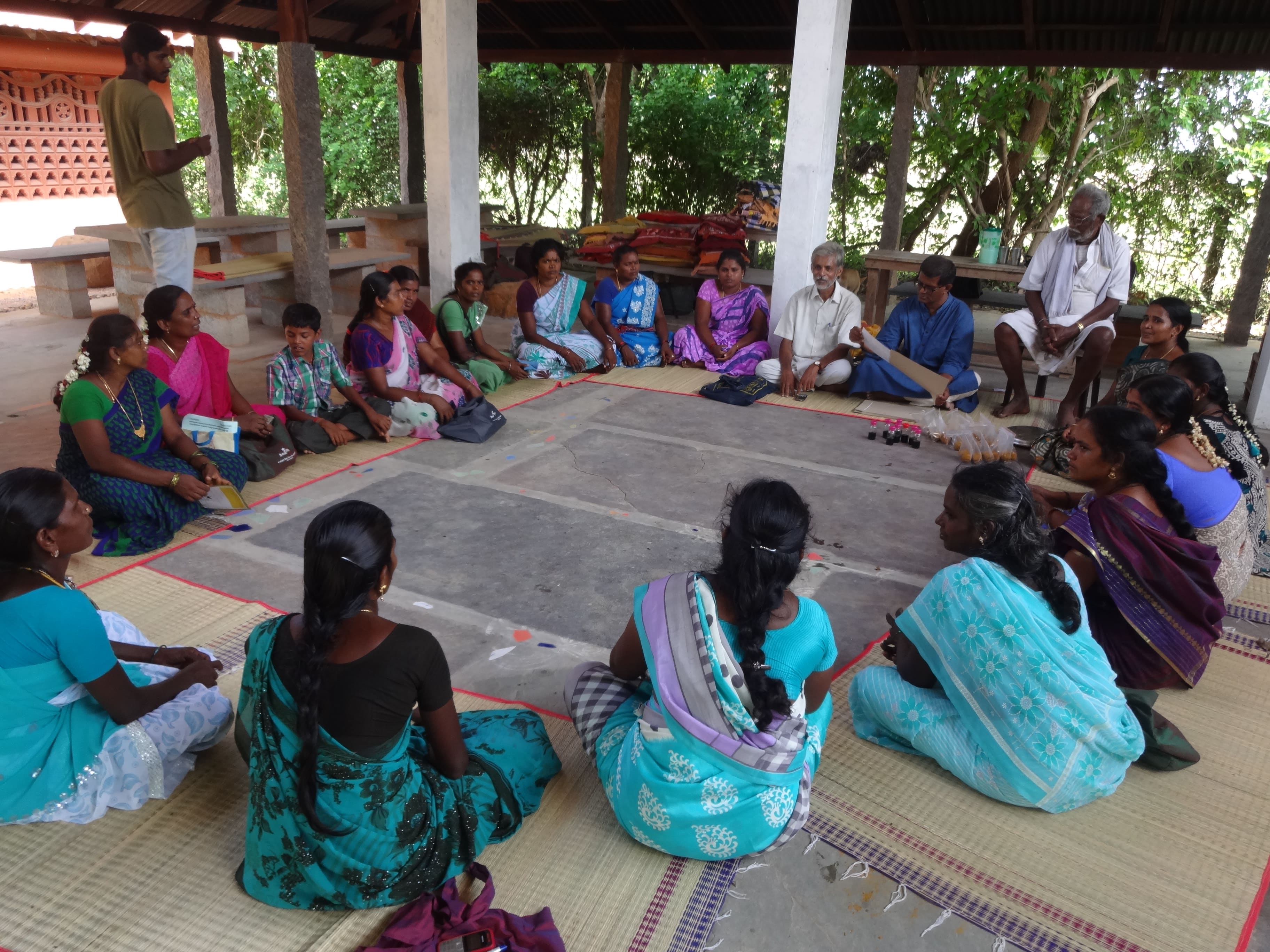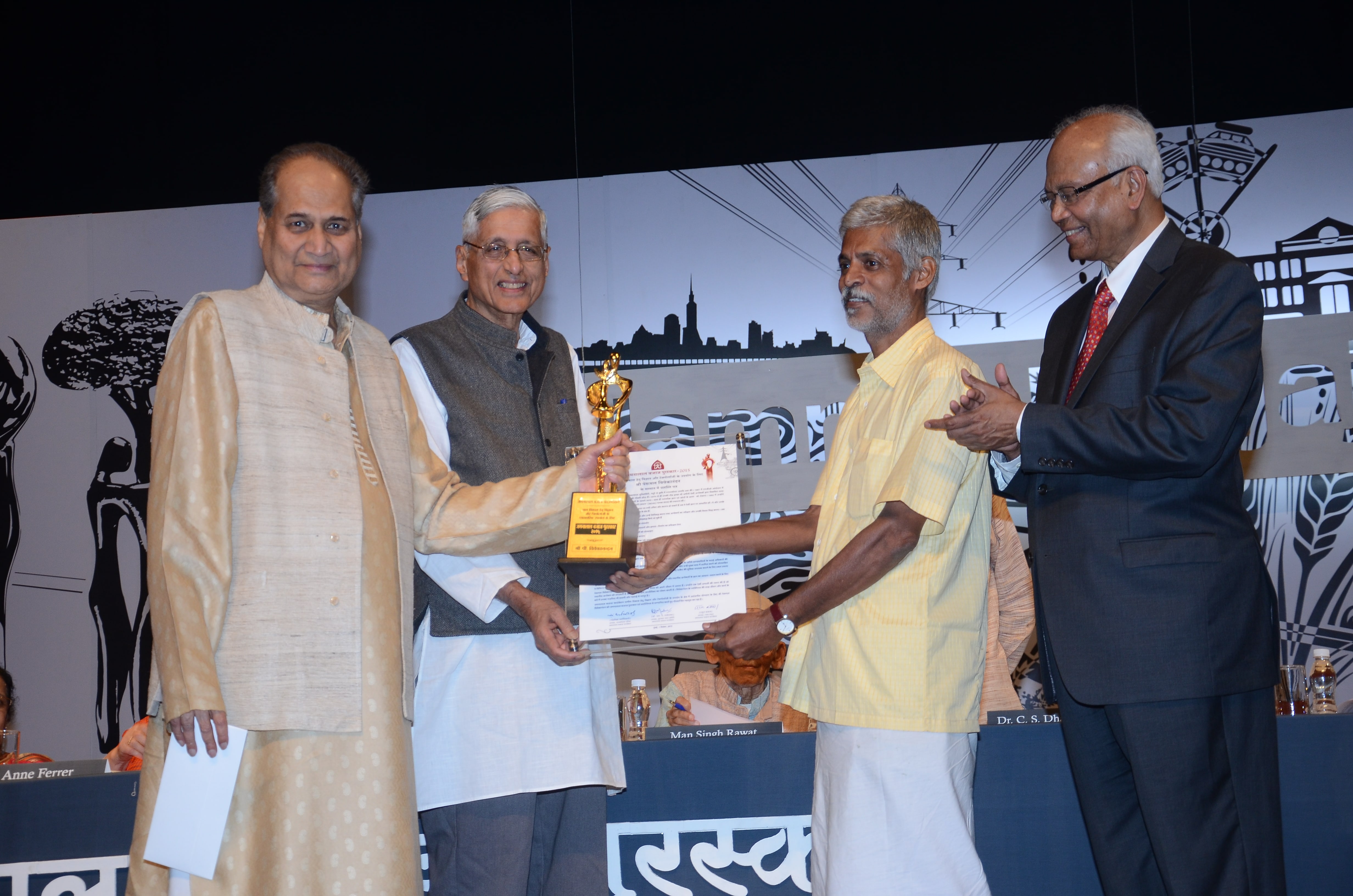TBI Blogs: This Visionary Has Documented over 8,600 Innovations & Practices to Help Thousands of Farmers
Perumal Vivekanandan has been working in the NGO sector for 30 years, encouraging grassroots innovators and giving them platforms to grow and flourish.
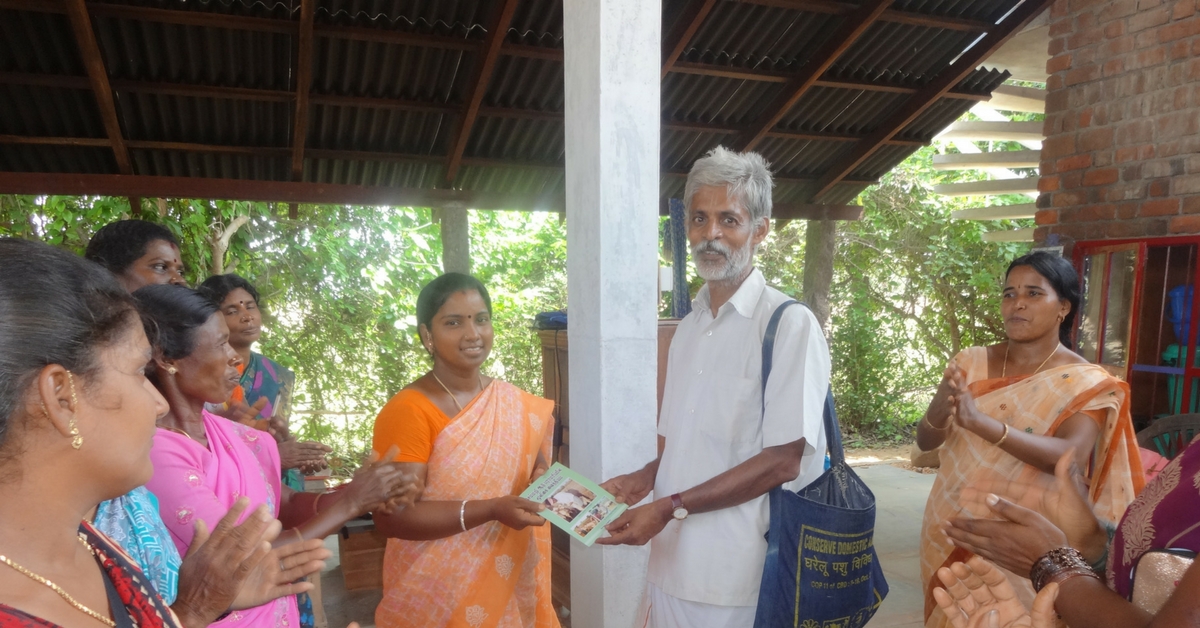
P. Vivekanandan, a post-graduate in agriculture, quit his job to join the NGO movement in 1987. He wanted to promote simple technologies developed by grassroots innovators and bring them to the forefront, while preventing erosion of traditional knowledge and resources.
To institutionalize this initiative, Vivekanandan formed an organization, Sustainable-agriculture and Environmental Voluntary Action (SEVA), in 1992. He collaborated with like-minded friends and community volunteers with specific focus on finding and researching rural people’s traditional knowledge systems and innovations. Through his organisation, Vivekanandan has reached rural, tribal, marginal, and nomadic pastoral communities.
Empowering grassroots innovators
Vivekanandan has been instrumental in empowering grassroots innovators, knowledge holders, traditional healers, and nomadic pastoral communities, and promotes conventional practices, innovations, and resources conserved by them. Under the leadership of Vivekanandan, SEVA has helped promote grassroots green technologies in Tamil Nadu, and documents the traditional knowledge/grassroots innovations in agriculture, animal husbandry, and conservation of agricultural biodiversity.
The need for enhancing people’s capacity to cope with drought, barren land, degraded soil, and growing scarcity of ground water in many villages of Tamil Nadu instigated Vivekanandan to explore alternate ways and means of sustainable livelihoods. He was also involved in the development of bhoodan land which was allotted to the poor and for community farming.
Vivekanandan believes that solutions are locally appropriate and feasible when they are based on indigenous knowledge. He and his facilitators follow this guiding philosophy.
Vivekanandan’s areas of contribution are:
- Identification and documentation of the works of rural innovators.
- Conservation of medicinal plants and rare animal breeds.
- Training farmers on ethno-veterinary practices and capacity building.
- Encouraging low-cost green practices in rural areas.
- Facilitating linkages for micro-venture capital and marketing.
While emphasizing on the preservation of indigenous agricultural practices, Vivekanandan and SEVA broadly focus and classify the work into two areas, viz.:
- Development activities towards conservation of local livestock breeds and natural resource management.
- Documentation and dissemination of indigenous knowledge and grassroots innovations.
While invention is about innovation, it is also about reviving traditional practices such as herbal medicine for animals and conservation of native livestock breeds. SEVA, under Vivekanandan’s guidance, encourages participatory interventions. It enhances the collective capacity of resourceful poor populations through sustainable management of natural resources, and by building upon their indigenous knowledge and innovations.
Vivekanandan’s vision has led to the formation of herders’ associations, farmers’ groups, and grassroots innovators associations. He has also motivated institutions, professionals, farmers, innovators, and conservationists to join the network for recognition and empowerment of resource-poor community members, and for conservation of animal genetic resources.
Some grassroots innovations
There are more than a dozen rural innovators who have discovered a range of products, from an automatic on-and-off switch system for street lighting, a device to climb palmyra trees, an improved handloom giving better production, to a new variety of drumsticks and red rice.
Some innovations, such as herbal pesticide development, automatic weft insertion in handlooms, and coconut dehusker, are commercialized.
Vivekanandan’s strength is his ability to find and encourage such grassroots innovators and to document their innovations and interact with scientific institutions, so that they are tested or validated for recognition, rewards, and dissemination.
Preservation of local breeds
Vivekanandan supports customary practices and pastoral communities as they are known for conserving local breeds of animals, which in turn provide livelihoods. This is what led him to work with pastoralists across the country to revive and build local cattle breeds.
SEVA is the lead agency working on a project to preserve four rare breeds of animals in India, ranging from the Pullikulam cattle in Tamil Nadu to a breed of amphibious camel in the Rann of Kutch, among others. In Tamil Nadu, Vivekanandan has worked for the rights of herders for conserving rare breeds. SEVA also promotes and facilitates farmers using local breeds of cattle for dairy.
Vivekanandan facilitated local Panchayat renovations of common property resources (viz. animal drinking water ponds, tanks, and borewells in 14 places in Nagapattinam and Thoothukudi districts of Tamil Nadu), arranged animal health camps, supplied breeding bulls, and prepared an action plan for the conservation of 10 native animal breeds by involving all the stakeholders. In several cases, as an outcome, notably for Umbalachery cattle in Nagapattinam district, there has been a significant increase in population of the breed.
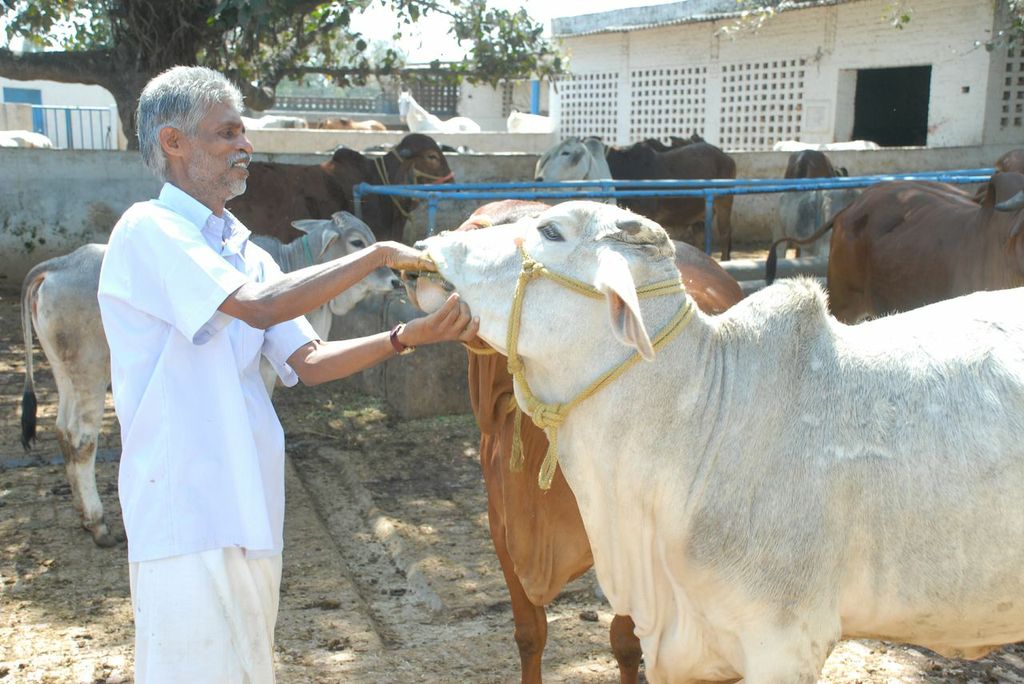
Social security for pastoralists
Vivekanandan, through SEVA, other NGO groups (LIFE Network), and volunteers, has advocated for pastoralists’ grazing rights. Due to this effort, the Food and Agriculture Organization (FAO) has recognized pastoralists globally as the guardians of biological diversity, and approved SEVA’s support of four local breeds maintained by pastoral communities in India.
Advocacy
Vivekanandan strives for advocacy in:
- Standardizing methods of preparation and administration of various traditional and herbal recipes for animals.
- Sensitizing and encouraging the government to mainstream innovations.
- Including the innovations in educational curriculum for students.
- Facilitating linkages, revitalizing the process, creating awareness, and promoting the innovators to other NGOs working in related fields.
Training and recognition to innovators
Selected best practices are tested by Vivekanandan, and that knowledge is disseminated to train farmers by conducting practical demonstrations at the village level. The innovators are encouraged by involving them in documentation process, with awards/recognitions, conducting workshops and training, and providing credit and value addition to the products.
SEVA conducts trainings/workshops/field demonstrations on herbal medicines for animals, for increasing efficiency in handloom weaving by automatic weft insertions, on local breed and pasture land conservation, green farming practices and operating innovative technologies/equipment, etc.
To encourage and recognize livestock keepers at the grassroots level, Vivekanandan introduced the Breed Saviour Award in association with the Local Livestock for Empowerment of Rural People (LIFE) Network and the National Bureau of Animal Genetic Resources. This is being supported by the National Biodiversity Authority, Chennai. They also disseminate information through their quarterly newsletter Num vali velanmai (in Tamil) which has circulated to around 1,000 subscribers for over two decades. It is published in association with SRISTI/National Innovation Foundation, Ahmedabad.
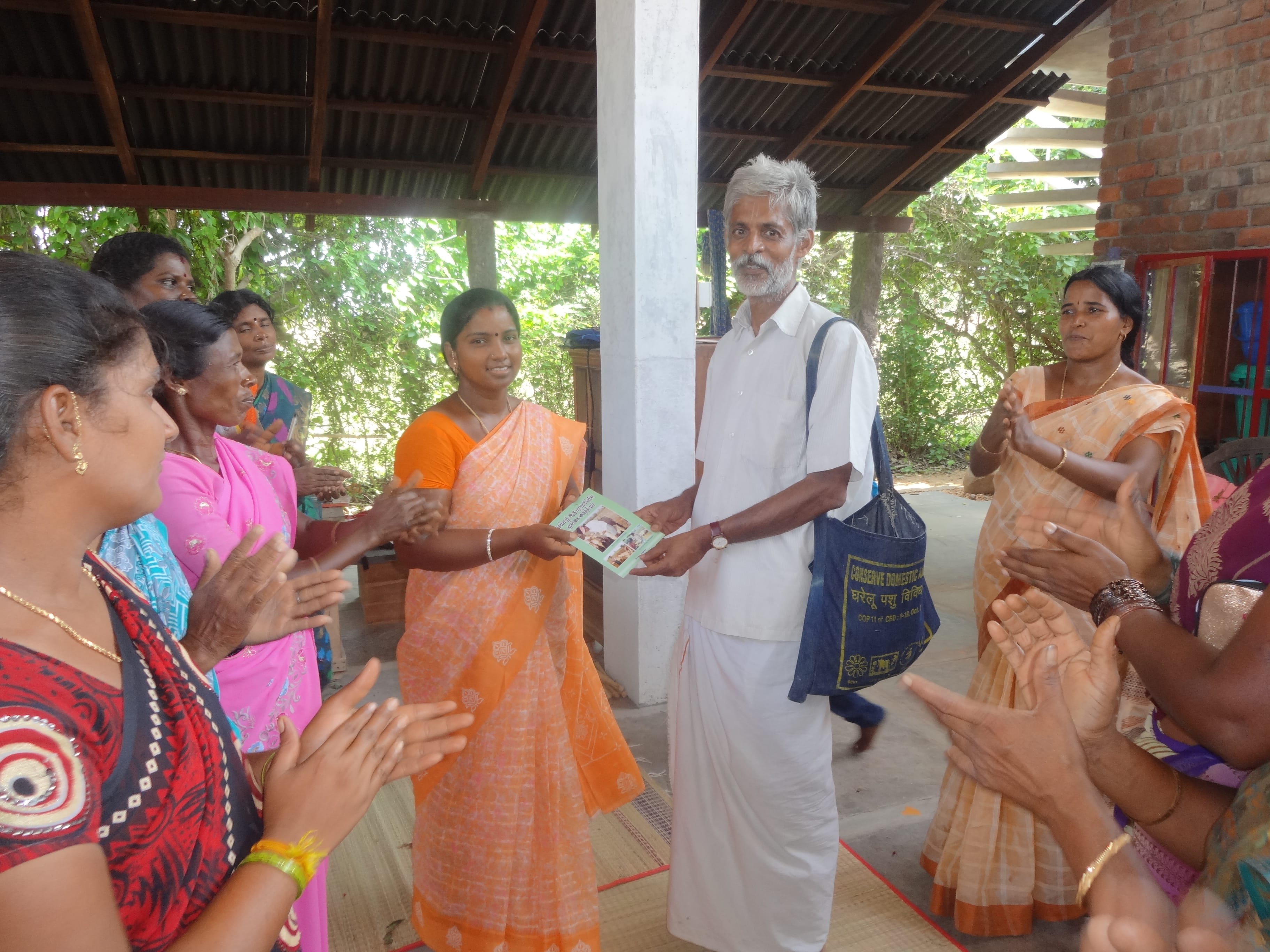
Impact
To spread their work, SEVA, in association with the Honeybee Network, conducts Sodhyatras across various villages and communities to exchange knowledge on best practices and local innovations. Youth encouragement and involvement is also of prime focus.
Vivekanandan has organized farmer training programmes to popularize low-cost herbal treatment for animals. He reached 135 villages in Tamil Nadu, two villages in Karnataka, three villages in Kerala, and one village in Jharkhand. His programmes have benefitted more than 5,500 farmers. There was once an outbreak of foot-and-mouth disease in Tamil Nadu. A herbal formula and low-cost treatment (based on traditional knowledge) saved more than 500 animals. Any farmer can prepare this herbal medicine.
Vivekanandan strives for capacity-building of innovators through documentation, testing, and marketing. He has helped products like low-cost plastic mulching in vegetables and automatic street light on-off switch. Other supported innovations include handloom innovation for the physically handicapped, fuel efficient 4-stroke engine in a two-wheeler, etc.
Some of Vivekanandan’s quantitative impacts are:
- Innovations and traditional practices documented: 8,600
- Innovators provided with micro-credit/venture capital: 30
- Practices tested and validated: 8
- Farmers/women trained in herbal medicine for animals and other innovations: 5,500
- Livestock keepers recognized with Breed Saviour Awards: 104
- Innovations commercialized: 2
- Farmers who adopted new low-cost green innovations: 500
- Breeds conserved through pastoralist/herders’ associations/service facilities: 12
Vivekanandan has helped many innovative small farmers, labourers, handloom weavers, women, tribes, and traditional vaidyas/healers. He has enabled national-level recognition through awards and royalties for technology transfers/patent rights. He has also procured micro-venture support for their knowledge, innovations, and genetic resources.
Vivekanandan has built a network of volunteers and youth to work with innovators.
He is on Department of Animal Husbandry, Dairying, and Fisheries’ National Steering Committee on Conservation of Threatened Breeds of Livestock. He is a member of the Sub-Group on Conservation of Animal Genetic Resources constituted under a Working Group on Animal Husbandry & Dairying for the Twelfth Five Year Plan (2012-17).
The National Innovation Foundation, Ahmedabad awarded Vivekanandan the first prize for scouting most rural innovations in Tamil Nadu in 2001. He has received The World Technology Award in 2003 for Environment (finalist) and the George Atkins Communications Award in 1999.
Perumal Vivekanandan practices material simplicity with spiritual richness in his way of life. He has created a system that breeds local innovation and supports sustainable and rural livelihoods. Like his personality, Vivekanandan’s approach to life and work is simple and deep. He is a facilitator of development of grassroots innovation for over two decades.
In 2015, Perumal Vivekanandan received the Jamnalal Bajaj Award for Application of Science and Technology for Rural Development.
For more information about other past winners, visit the Jamnalal Bajaj Awards website.
Like this story? Or have something to share? Write to us: [email protected], or connect with us on Facebook and Twitter.
NEW: Click here to get positive news on WhatsApp!
If you found our stories insightful, informative, or even just enjoyable, we invite you to consider making a voluntary payment to support the work we do at The Better India. Your contribution helps us continue producing quality content that educates, inspires, and drives positive change.
Choose one of the payment options below for your contribution-
By paying for the stories you value, you directly contribute to sustaining our efforts focused on making a difference in the world. Together, let’s ensure that impactful stories continue to be told and shared, enriching lives and communities alike.
Thank you for your support. Here are some frequently asked questions you might find helpful to know why you are contributing?


This story made me
-
97
-
121
-
89
-
167



